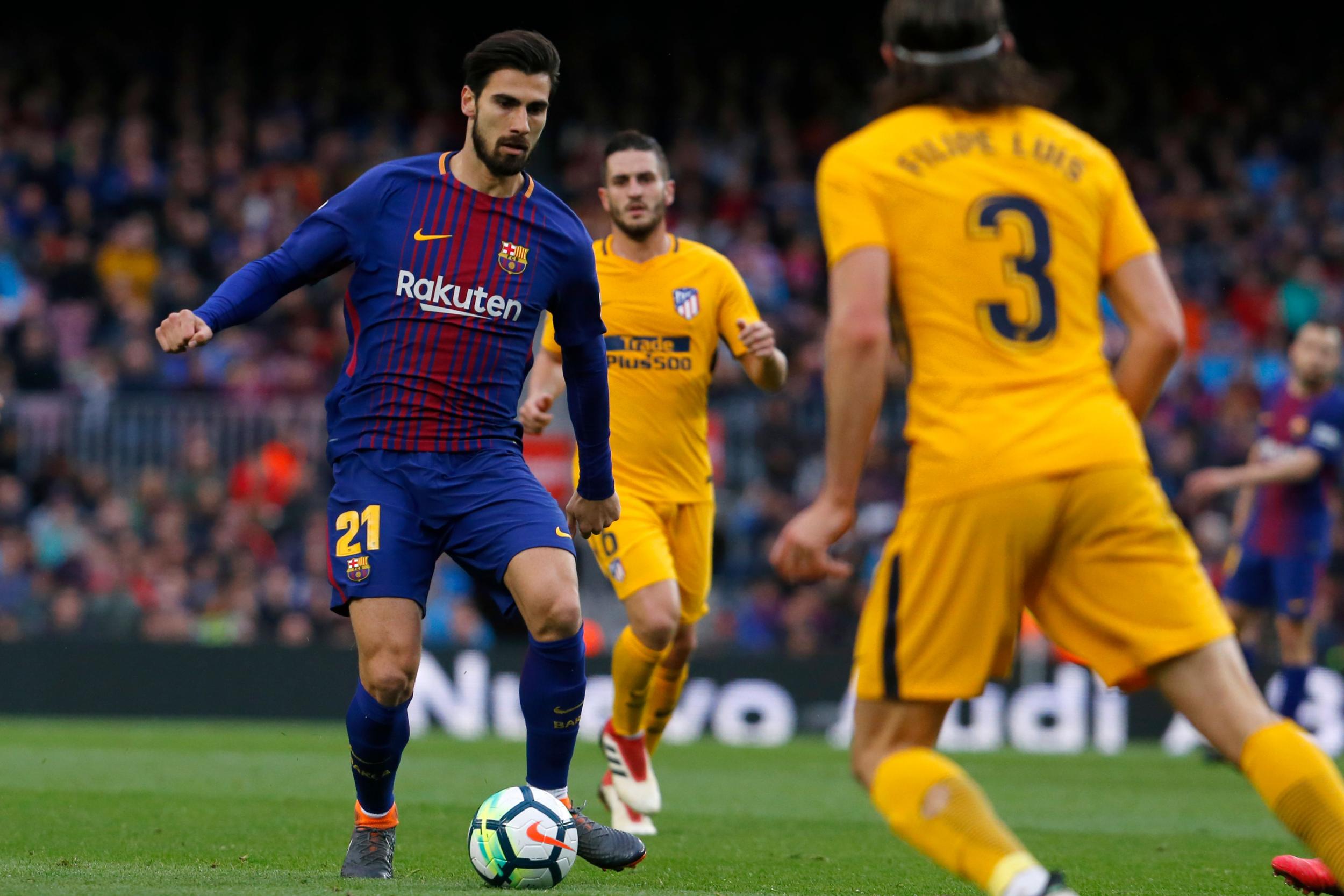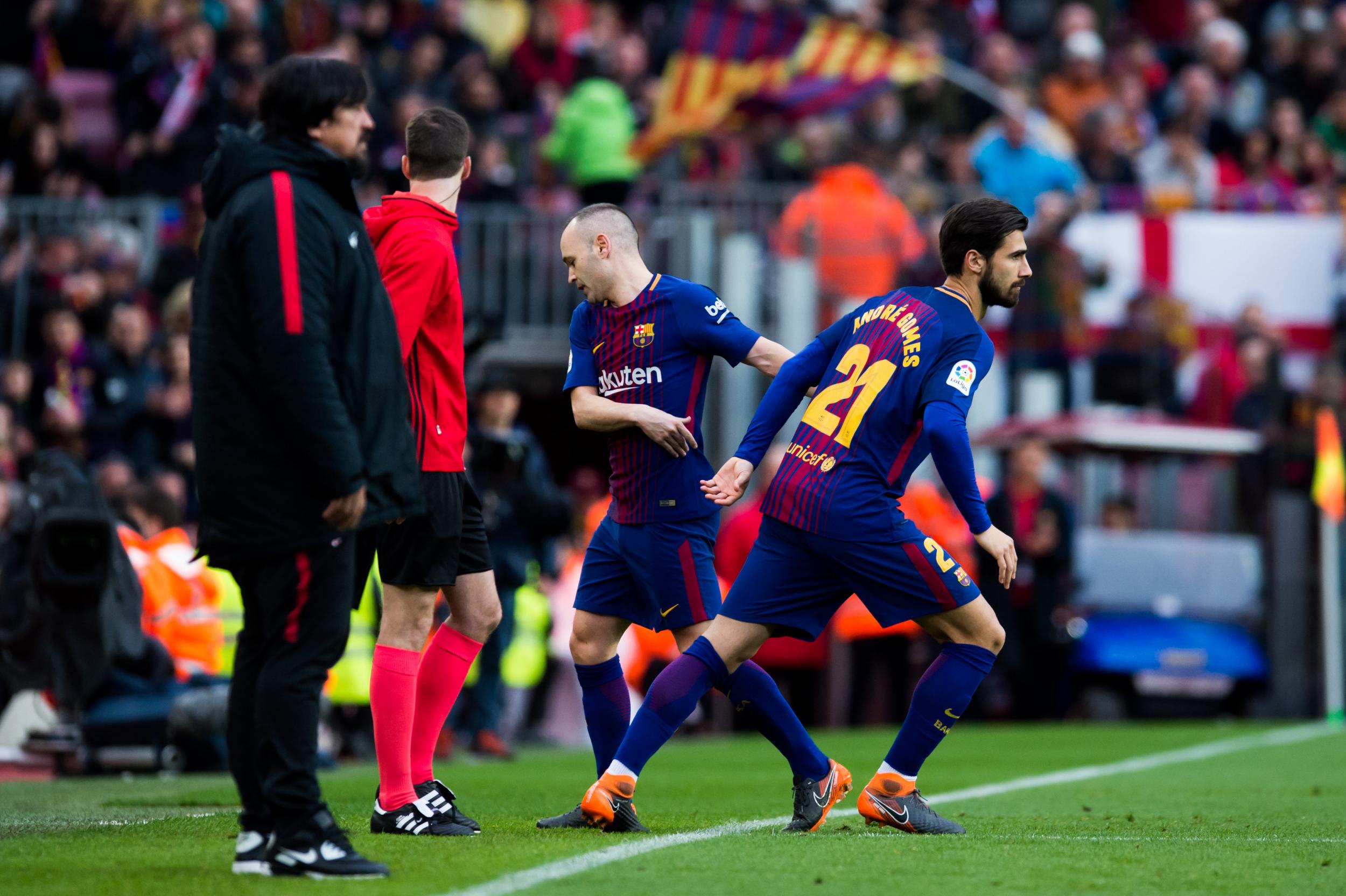‘A kind of hell’: Andre Gomes’s candid interview is a reminder that emotional distress does not discriminate
The Barcelona midfielder’s admission that he felt ashamed of his performances was courageous at a time when footballers’ mental wellbeing is so often an afterthought

For an example of football’s lust for fault-finding, see Marca’s end-of-season wrap last year. The Spanish newspaper ran a poll to determine who was the worst signing in La Liga, pulled their leading dunces into a 3-4-3 formation under the title ‘La Liga disappointing XI’, and revealed that with 32% of the vote, Barcelona’s Andre Gomes was the ultimate failure.
Relentless criticism takes a toll. In a candid interview this weekend, Gomes revealed the emotional distress he has been suffering at Barcelona. The 24-year-old midfielder had been hurting for a while, caught in a miserable cycle of underperformance and doubt, and admitted feeling so ashamed that he wouldn’t leave his house.
Gomes has struggled since making a £29m move from Valencia in 2016, to play in a stadium where flawless performance is a minimum requirement. The Camp Nou is Europe’s ultimate footballing theatre, but it is an unforgiving place to fluff your lines.
The crowd’s derision reached tipping point last week in Barcelona’s 2-1 win over Atletico Madrid, when Gomes was sent on to replace the injured Andres Iniesta in the first half. Discontent swelled in the stadium as he came on – little wonder he nervously scuffed his first cross into the goalkeeper’s arms.

“I don’t feel good on the pitch,” Gomes told Panenka magazine. “I am not enjoying what I am doing. The first six months were pretty good but then things changed. Maybe it’s not the right word to use, but it has turned into a kind of hell, because I have started to feel more pressure... The feeling that I have during games is bad.
“I close myself off. I don’t allow myself to get rid of the frustration I have. I don’t talk to anybody. It’s like I feel ashamed. Thinking too much has hurt me. I think about the bad things and what I have to do.”
It is rare to hear a player describe elite football in terms of its psychological challenges. The game is still influenced by skewed ideas of macho-ism. Stigma permeates the game: in the dressing room, where Gareth Southgate said England players do not open up for fear of “showing weakness in front of each other”; in the stands, where Scottish League Two player David Cox faced taunts of “Do it right this time” after attempting suicide; and in the media, where the idea that high-earners should suffer less still persists.
Speaking before Barcelona’s Champions League second leg with Chelsea on Wednesday evening, the manager Ernesto Valverde praised Gomes’s courage.
“It was very brave for Gomes to admit how he was feeling, in such a public manner. We are careful not to give out insecurities or weakness. But it’s nothing new. He is not the only one. It’s something which happened to most of us. It’s something you have to face and overcome. We are here to help and we are going to help.”
Footballers exist in a fiercely competitive environment. The PFA lists a number of common anxieties – moving clubs, insecurity over contracts, changes in management, isolation after retirement, and the stress associated with the pressure to perform. Performances have a significant influence on self-worth, and there is little sympathy on offer when players are perceived to be living the dream.
Every now and then it is important to be reminded that if the celebrity filters were switched off, we’d see a player like Gomes as a normal 24-year-old man from Portugal doing a job, and constantly being made aware that he isn’t doing it very well.
Plenty of excellent work is being done to improve awareness of mental health issues and encourage openness among players. In England, the Professional Footballers’ Association established a welfare department in 2012, where more than 160 members undertook counselling in 2016. That number is rising each year.
But it remains the case that physical wellbeing is a precious commodity in football, while mental wellbeing is an afterthought. Shifting that balance will only come about through relaying the experiences of players like Gomes, which stand as proof that emotional distress does not discriminate.
Join our commenting forum
Join thought-provoking conversations, follow other Independent readers and see their replies
Comments
Bookmark popover
Removed from bookmarks